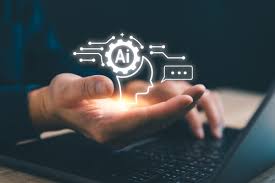⏱️ Read Time: 4 minutes
In 2025, the integration of Artificial Intelligence (AI) into software development has reached unprecedented levels. AI code assistants, such as GitHub Copilot, Codeium, and Tabnine, are transforming the way developers write, debug, and optimize code. These tools leverage large language models to provide real-time code suggestions, automate repetitive tasks, and even generate entire codebases from natural language prompts.
Enhancing Developer Productivity
AI code assistants are significantly boosting developer productivity. By automating routine coding tasks and offering intelligent suggestions, developers can focus more on complex problem-solving and system design. This shift not only accelerates the development process but also reduces the likelihood of human error, leading to more robust and reliable software applications.
The accessibility of AI code assistants is also helping to bridge the skill gap in the tech industry. Novice programmers can learn best practices by observing AI-generated code suggestions, while experienced developers can explore new programming languages and frameworks with guided assistance. This democratization of coding knowledge is fostering a more inclusive and diverse developer community.
Challenges and Considerations
Despite the advantages, the adoption of AI code assistants raises important considerations. There are concerns about code quality, security vulnerabilities, and the potential for over-reliance on AI-generated solutions. Developers must remain vigilant, reviewing and understanding the code produced by AI to ensure it meets project requirements and adheres to security standards.
The Future of AI in Software Development
Looking ahead, the role of AI in software development is poised to expand further. We can anticipate more sophisticated AI tools capable of understanding complex project requirements, collaborating seamlessly with human developers, and even contributing to architectural decisions. As these technologies evolve, they will continue to reshape the landscape of software engineering, emphasizing the synergy between human creativity and machine intelligence.
Conclusion
The emergence of AI code assistants marks a significant milestone in the evolution of software development. By enhancing productivity, supporting learning, and fostering innovation, these tools are redefining the developer experience. As we navigate this new era, it is crucial to balance the benefits of AI integration with thoughtful oversight to ensure ethical and effective use in the software industry.



